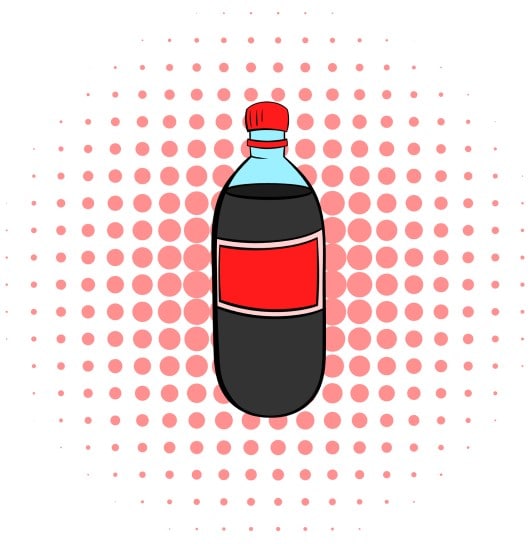
Can’t sleep after drinking Coke or Pepsi? – Practical tips to get things back on track and prevent cola insomnia
By Jason Wooden, PhD | September 17, 2020
If you can’t sleep after drinking Coke or Pepsi, it’s no surprise since one 12 oz can contains up to 46 mg of caffeine. Cola can also reduce the amount of deep sleep you get.
To fall asleep more quickly, you can try relaxing music, gentle stretching, or other calming activities. To prevent cola insomnia, you should avoid sugary caffeinated beverages in the evening, adjust your bed room, and switch to soda substitutes.
Why too much Coke (and Pepsi) too late is likely keeping millions of people awake at night
So, your favorite cola has got you wide awake?
Every night as many as a third of adults worldwide struggle with sleep. Caffeinated beverages are likely an issue for some given how popular they are.
Let’s be honest – if you get hooked, it’s sometimes hard to cut yourself off from soda in the evening.
Did you know that 1.7 billion servings of Coke products are consumed every day?
That’s a lot of cola servings and it doesn’t evening include the numbers for Pepsi.
What this means is that you’re likely not the only one paying the price for too much cola too late in the day.
Whether you’re drinking it for taste or an evening pick me up, it’s all the same to your sleep.
So, what’s one to do when you enjoy it so much and it’s hard to stop with just one can?
Let’s take a look at the surprising ways cola can cause insomnia – there’s more going on than you realize.
We’ll also look at some things that may actually help you get back to sleep more quickly and what you can do to protect yourself from cola insomnia.
The surprising ways cola can wreck sleep
Okay, most people are aware that too much cola in the evening can make it harder to fall asleep.
Did you know that a 12 oz can of Coca-Cola may contain up to 46mg of caffeine?
Pepsi is just as bad, you get 38 mg in a 12 oz can.
So, how does caffeine affect sleep?
Adenosine is a biochemical in the body that works as a sleep factor. Caffeine binds to it and keeps it from doing its job to make you sleepy. This delays your body clock which is why you may find yourself wide awake hours past your bedtime.
What many people may not realize is that once you eventually fall asleep, caffeine isn’t done causing trouble. It can actually reduce the amount of deep sleep you get. (These are the stages of sleep where your body restores and replenishes itself.)
Another thing drinking too much cola too late can do is cause more sleep disrupting night time visits to the bathroom. Too much fluid before bedtime does this to many people, but you get extra trouble with caffeine because it’s a diuretic.
So, that’s all the ways the caffeine in Coca-Cola and Pepsi can wreck your sleep:
- it takes longer to fall asleep
- less deep sleep
- more bathroom visits
How long does caffeine linger in the body?
So, you may be wondering how long that caffeine hit from your cola can stick around to wreck your sleep.
It turns out this will not be same for everyone.
It will depend on how sensitive you are to caffeine. Many factors have been found to affect caffeine sensitivity, including genetics, gender, body weight, and hormonal changes.
And obviously, it’s going to depend on how much you’ve drunk and how close to bedtime it was.
Generally, when you consume caffeine, it reaches a peak level in 30 to 60 minutes. Once it’s in you, it has a half-life of 3 to 5 hours. (This is the time it takes to eliminate half of the amount you consumed.)
Another important factor is age. Recent research has shown that over time you can become more sensitive to caffeine due to biochemical changes in the body.
So even if in the past a late night cola hasn’t seemed to keep you up, it may be catching up with you as you get older.
Don’t forget about the sugar in your cola, it’s linked to sleep problems too
We’ve talked about the caffeine, but many people are not aware of how the sugar may be hurting their sleep.
Did you know that a 12 oz can of Coke contains a whopping 39 grams of sugar?
A 12 oz can of Pepsi is just as bad with 41 grams.
That’s a lot of sugar!
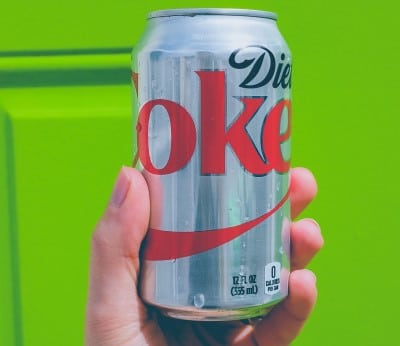
It turns out that high sugar intake has been linked to restlessness and poor sleep in studies.
Excessive sugar is also linked to inflammation in the body. There’s growing evidence that inflammation and sleep are connected.
And let’s not forget what all that extra inflammation can do to aggravate any pain and stiffness you have. Both are a major issue for sleep on their own.
But wait, there’s more…
Sugary beverages can increase your risk for type 2 diabetes, weight gain, heart disease, and other chronic diseases. Many of these health conditions can cause problems for sleep.
So, if you can’t sleep after drinking cola, it’s not just the caffeine. All that sugar can cause or worsen insomnia.
The 9 things that may help if you can’t sleep after drinking cola
It goes without saying that the best thing is to stay away from cola in the evening.
Sleep experts recommend that you avoid caffeine 4 to 6 hours before bedtime. If you’re really sensitive, you may need to stop drinking cola as early as the afternoon.
But right now, that’s water under the bridge…
So, what can you do when you get into late night caffeine trouble?
While it may take time for the caffeine to wear off, there are things that may help your body more quickly transition to sleep and deepen your slumber:
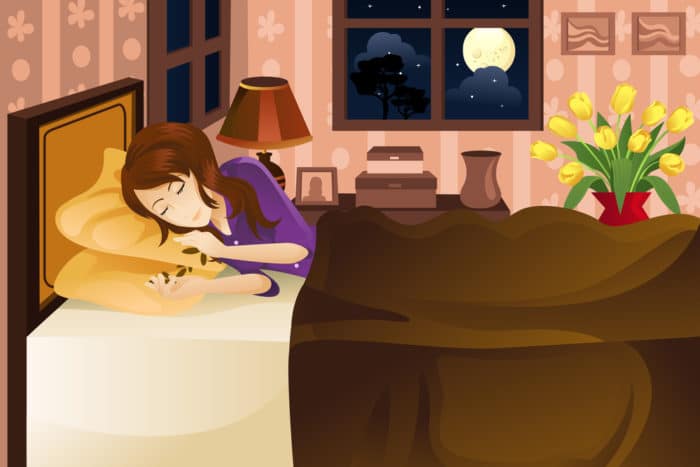
1) Adjust your sleep environment
Make sure you have a sleep friendly bedroom. It should be dark, quiet, and cool.
Colder temperatures help your body’s natural sleep process. Studies suggest keeping your room between 60 and 67 degrees Fahrenheit (16 – 19 degrees Celsius) is optimal for sleeping.
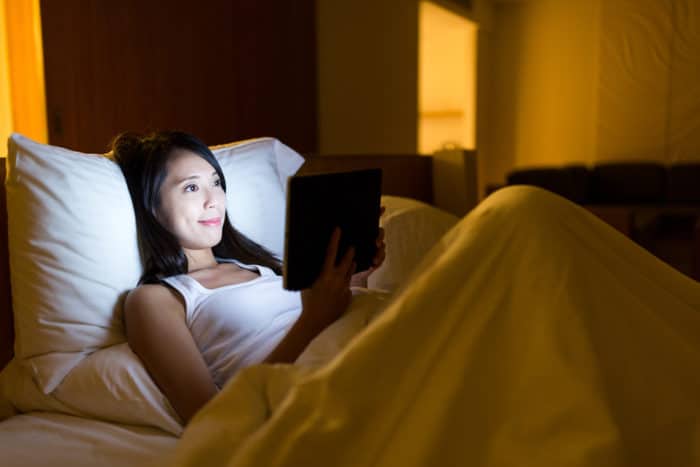
2) Turn off your devices
Smartphones, tablets, AND TVs emit bright blue wavelength light that can delay your natural sleep-wake cycle.
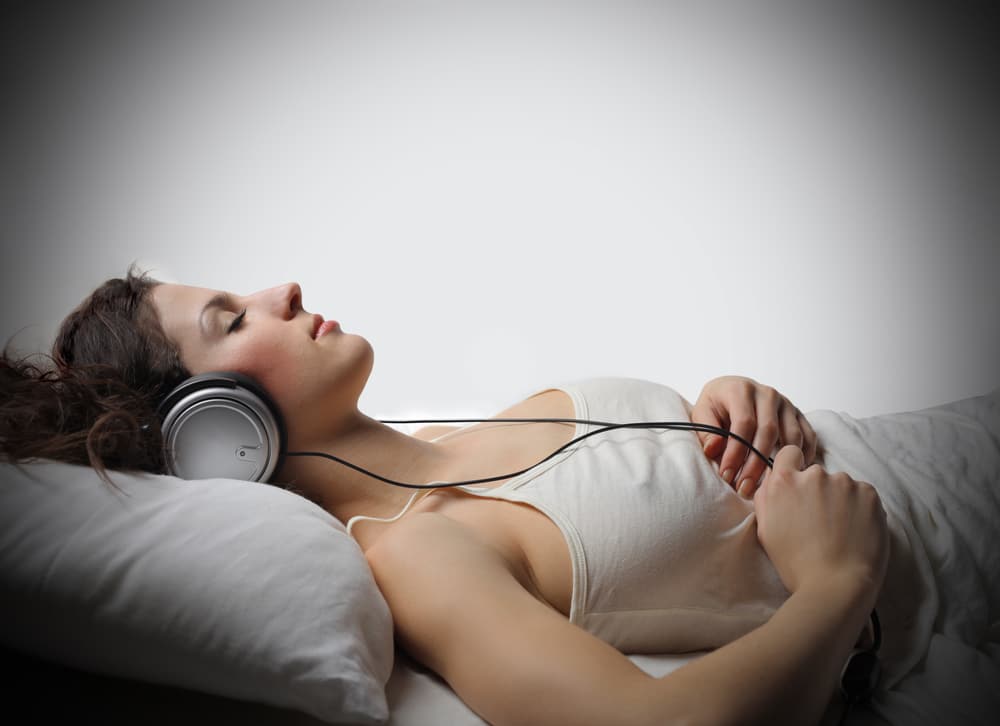
3) Calming music
Soothing music such as quiet classical tracks can help calm down the body and mind, making it easier to fall asleep.
Slow rhythm songs (60 to 80 beats per minute) have been shown in studies to improve sleep.
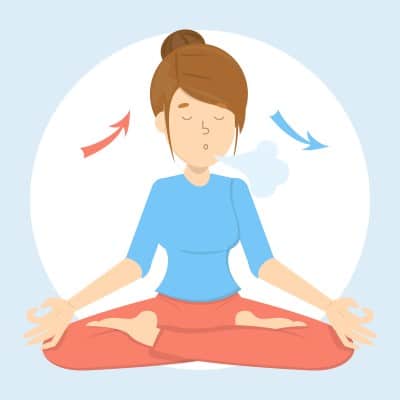
4) Deep breathing
Simple breathing exercises are another way to relax the body. The 4-7-8 breathing technique, pioneered by Dr. Andrew Weil, involves regulating your breathing to various counts of 4, 7 and 8.
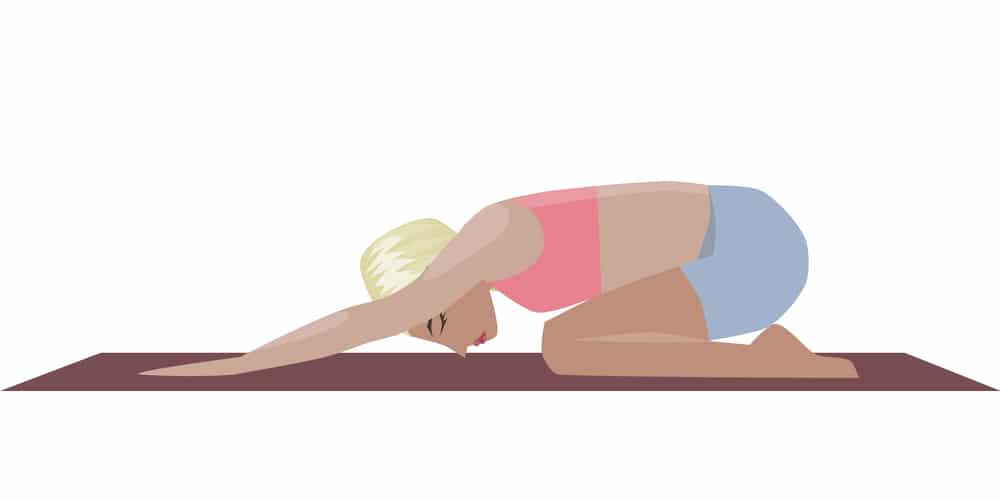
5) Gentle Stretching
Light stretching can also help the body relax. You may want to try yoga which combines stretching with breath control.
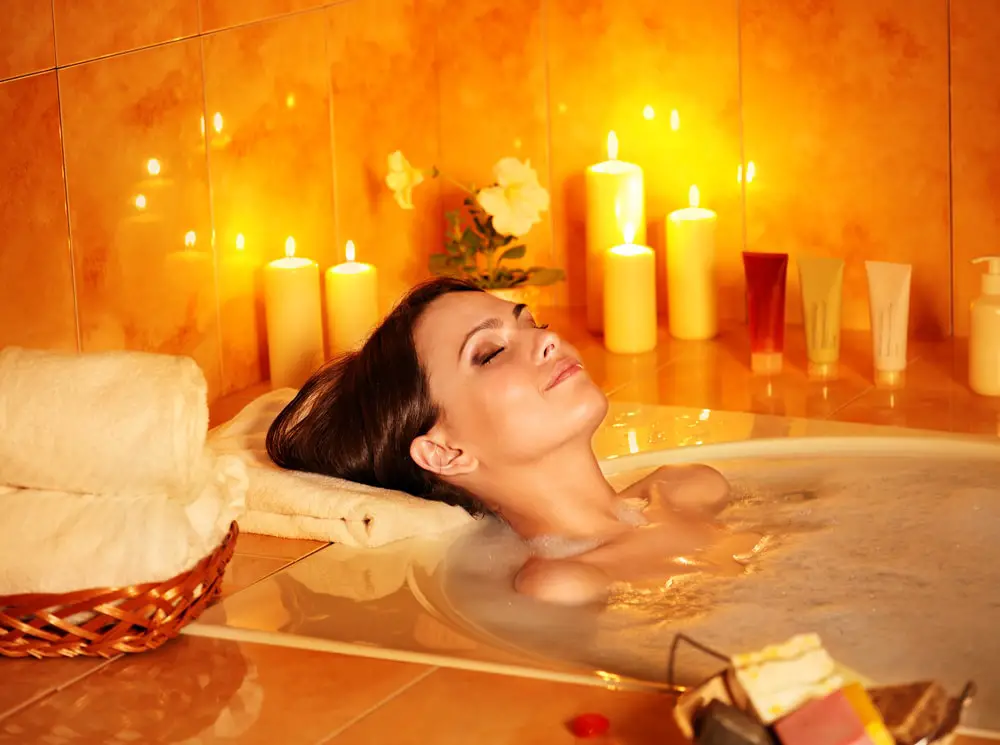
6) Try a warm shower or bath
Your body temperature naturally dips at night before bedtime. Taking a warm shower or bath can help you relax while raising your body temperature.
When finished you return to a cooler bedroom and the temperature drop signals to the body it’s time to sleep.
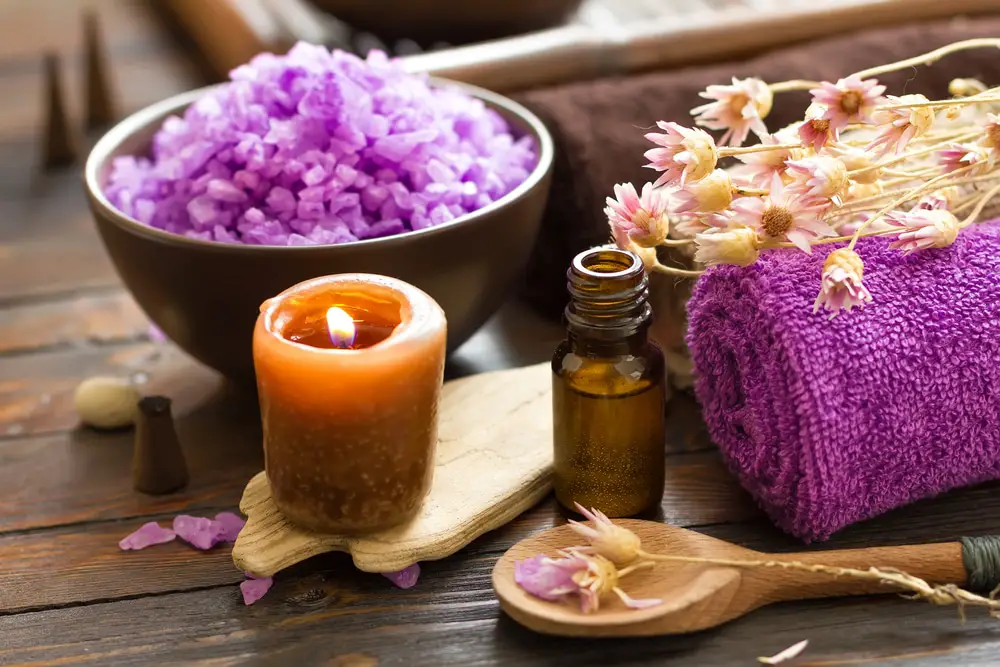
7) Aromatherapy
Studies have shown that lavender essential oils can help relax the body and promote sleep. While lavender is the most studied, oil extracts from other yellow citrus fruits such as bergamot and yuzu can have calming effects on the body.
Be sure that the oil extract you use is of therapeutic quality and purity.
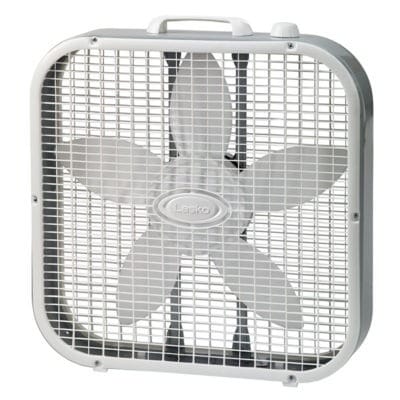
8) White noise
White noise can reduce the difference between regular background noise in your environment and other sounds that can arouse you out of sleep. Some people also find that it’s calming and it makes it easier to fall asleep.
Learn more:
Best fan for white noise to help your sleep
White noise phone apps
8 Best Sound Machines for Sleep of 2020 (Verywell Health)
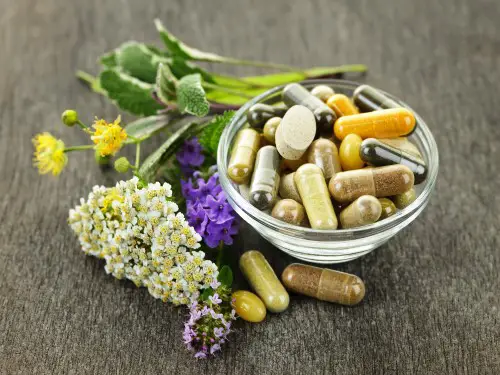
9) Natural sleep aids
There are a variety of natural supplements that may help if you find your self wired up and unable to sleep.
While they haven’t been directly tested for caffeine relief, many have been found to help reduce the anxiety and stress that can keep people from getting quality sleep.
Weaning yourself off of cola so it doesn’t keep you up at night
We’ve already talked how important it is to avoid sugary caffeinated beverages if you can’t sleep after drinking cola too late in the day.
Looking for a more sleep-friendly alternative to cola?
They’re plenty of options to try…
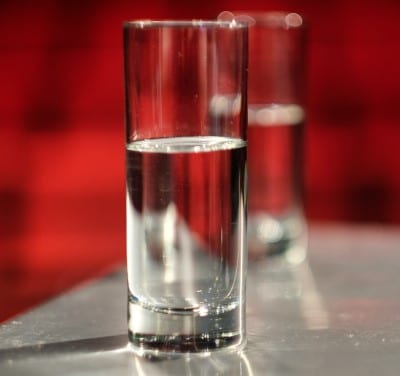
Water:
Yes, it’s boring compared to cola, but nothing is healthier
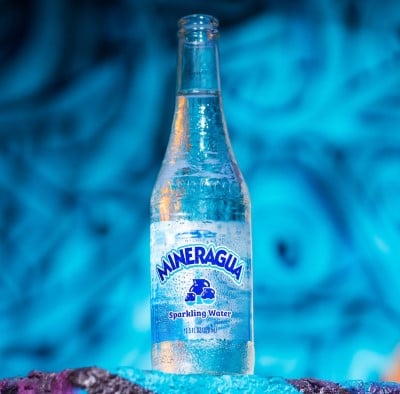
Sparkling water:
It gives you the pop and fizz of soda without the caffeine or sugar
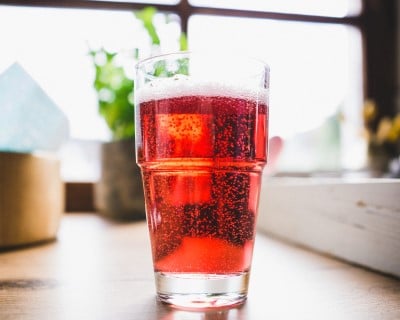
Sparkling water with juice :
Add your favorite fruit juice to fizzy water. Make sure you use juice with no added sugar.
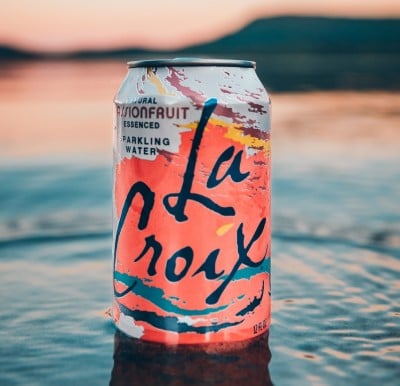
Flavored sparking water:
You can find fizzy water flavored with lime, strawberry, and many other flavors. You can also just add slices of your favorite fruit to a glass of fizzy water.
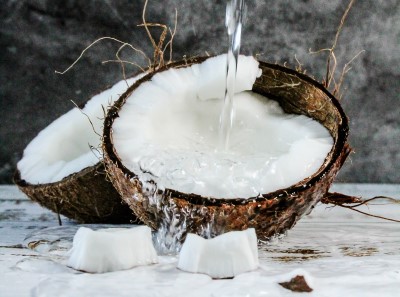
Coconut water:
A popular drink with natural vitamins and electrolytes.
If you find you’re having a hard time cutting back, you may be addicted and experience symptoms like these:
- anxiety
- headaches
- nervousness
- irritability
- moodiness
- dizziness
- feeling jittery
- racing heart
- dehydration
If this is you, it’s best to best to slowly cut down your intake.
Learn more:
You may also be interested in:
The Older You Get the More Caffeine Can Get You
Caffeine Addiction and Abuse (AddictionCenter.com)
How to Stop Drinking Soda: A Complete Guide (Healthline.com)
I Tried to Quit Diet Soda 4 Times. Here’s What Finally Changed My Ways
How to stay awake during a Zoom online class
16 Things to try to keep from falling asleep at work
How to stay awake at work while pregnant
How to go to sleep after drinking an energy drink
Sources:
1. “World Sleep Day Talking Points”, World Sleep Society website
2. “15 Facts About Coca-Cola That Will Blow Your Mind”, 2011, Businessinsider.com
3. “What is caffeine?”, Coco-Cola company website
4. “How Much Caffeine is in Soft Drinks?”, 2014, Nutrition Action website
5. “Urinating more at night”, U.S. National Library of Medicine website
6. “Sleep and Caffeine”, 2013, American Academy of Sleep Medicine website
7. Distinct sensitivity to caffeine-induced insomnia related to age. Journal of Psychopharmacology, 2018, volume 32, issue 1, pages 89-95.
8. “How much sugar is in Coca-Cola?”, Coca-Cola company website
9. Pepsi Nutrition Facts, PEPSICO company website
10. Fiber and Saturated Fat Are Associated with Sleep Arousals and Slow Wave Sleep, J Clin Sleep Med. 2016 Jan;12(1):19-24.
11. “The Scary Effects Sugar Has on Your Sleep”, 2019, CPAP.com
12. “Sugary Drinks”, Harvard School of Public Health website
Connect with us:
About Us
Better Sleep Simplified® was founded as a place for you to get clear and well-researched information.
Our goal is to make sure you know about your options so that you take action sooner rather than later.
Check us out on YouTube:
Watch and Learn
Helpful sleep tips, interesting sleep facts and statistics you want to know about
Affiliate Disclosure
This site is a participant in the Amazon Services LLC Associates Program and other affiliate advertising programs designed to provide a means for sites to earn advertising fees by advertising and linking to them.
Important: BetterSleepSimplified.com is for informational purposes only and is not intended or implied to be a substitute for professional medical advice, diagnosis, or treatment. Always consult a physician for sleep and health concerns. See additional information.
